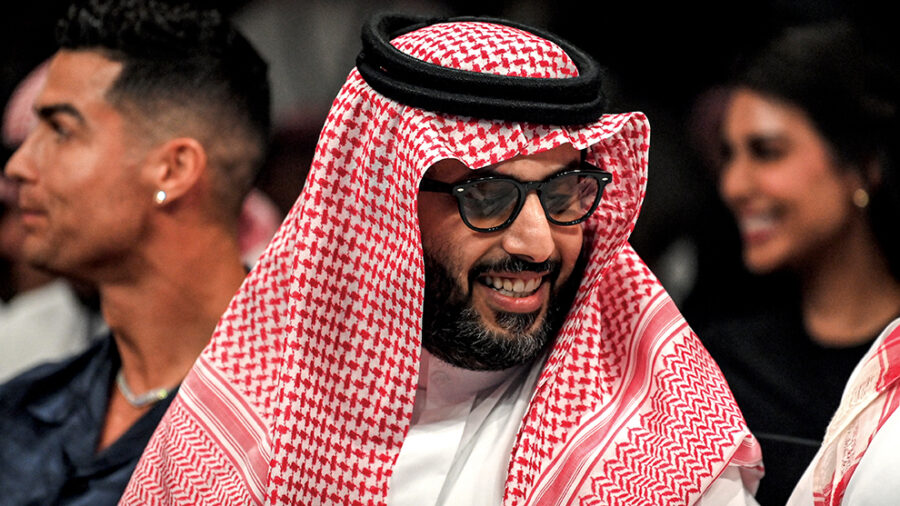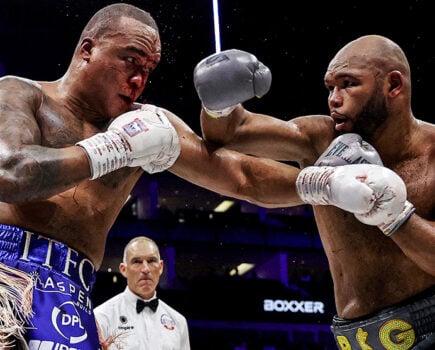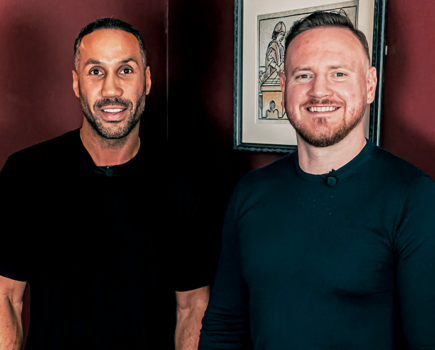By Matt Christie
ONCE upon a time in Saudi Arabia, the man widely regarded as the best heavyweight in the world was almost beaten by a debutant and subsequently had to postpone a fight with his closest rival. Less than two months later in the same Kingdom, a card featuring several other top heavyweights, which had been put together in a matter of days, unfolded over the course of eight hours in which reputations were both restored and shattered, before plans for two more mammoth events were confirmed to take place just five months after the aforementioned debutant, who will make his return in one of them, had almost beaten the leader, who will fight his closest rival in the other.
Though we’re living through all of this, it’s still scarcely believable.
Turki Al-Sheikh, the 42-year-old Chairman of the General Authority for Entertainment in Saudi Arabia, is doing for heavyweight boxing what ecstasy pills did for Manchester nightclubs in the 1990s. The banner division has become his playground and, all around him, hands are being held, minds are being lost, fights are breaking out and the pupils of the once old and tired are bulging with euphoria. Resistance to this extraordinary Saudi revolution is futile because, irrespective of any nagging voices suggesting something isn’t quite right, it’s happening. Don’t worry about the long-term consequences or what might go wrong because, right here and right now, we’re in the thick of the party of a lifetime.
For those so used to the top heavyweights fighting once or twice a year, yet not once taking on the opponent everyone wants to see them fight, this kind of activity is completely alien. Think of the 1970s, when heavyweights would fight whoever was put in front of them, whether they were on a winning streak or had just awoken from being knocked out cold. It remains the gold standard in heavyweight history, and not just because the fighters were great fighters, but largely because they proved themselves to be by fighting all their rivals. Losses were not the end of the line and fearlessness was very much the order of the day. This time last year, before Al-Sheikh’s arrival, we had long given up on such an era occurring again.
Al-Sheikh, in the space of six breakneck months, has become the most influential figure in the entire sport. Even allowing for the billions at his disposal, and boxing’s habit of inviting anyone to the top table, it’s a truly incredible development and whether it lasts for six years or six months, Al-Sheikh is undeniably achieving what couldn’t be achieved before he arrived on the scene.
On February 17, Tyson Fury and Oleksandr Usyk are due to collide for all the belts. For the first time since Lennox Lewis was around at the turn of the century, the world will have one heavyweight champion. Three weeks later, Anthony Joshua will take on Francis Ngannou – that debutant – in what will be his fourth contest in a 12-month period. From the sublime to the ridiculous, both bouts are compelling for contrasting reasons. Ngannou proved his toughness and then some against Fury but should still be target practice for Joshua. With Deontay Wilder set to return on that Joshua-Ngannou bill, don’t be surprised to see the American score a highlight reel KO, and for Joshua-Wilder, despite the ‘Bronze Bomber’s’ December loss to Joseph Parker, to be reborn yet again.
Zhilei Zhang, Parker, Daniel Dubois and Filip Hrgovic are all in the mix, too. Others, like Jared Anderson and Frank Sanchez, might be about to gatecrash, Joe Joyce wants to prove he’s worthy of an invite and teenagers like Moses Itauma are preparing their fake IDs.
Whatever happens, there are suddenly options aplenty for the winners and losers. And in this new world order, options morph into genuine fights very quickly indeed. There is no dilly-dallying at negotiating tables, no endless teasing from promoters trying to prove their worth in YouTube interviews, no bowing down to sanctioning body politicking, and not nearly enough time for the fans to grow restless.
In short, this can’t possibly last. So, misgivings are put to one side and consciences are left at the door. The subsequent hangover, as the division struggles to exist without the billions it has quickly gotten used to, might not be a lot of fun. But after 20-odd years of yearning for this kind of bedlam, who can blame those involved for getting their glad rags on?






